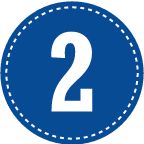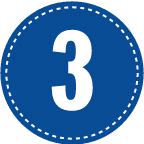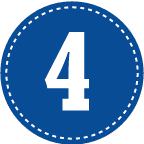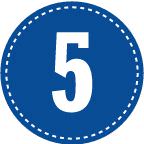Writer’s Block Debunked

I don’t believe in writer’s block. I think it’s an umbrella term for a whole bunch of problems, each of which has a solution. For sure, writing is difficult, and it is perfectly possible to get stuck. That happens to me all the time. But a complete block? I don’t think so. Seems to me awriter’s block’ is a lazy catch-all term which conveniently shifts responsibility from the writer to the ablock’. That’s certainly not going to help.
Here are six of the things I think may be really going on.

Fear of failure.
Writing for submission or publication can be terrifying. You’re working towards putting your work out in the world where it – and to some extent you – will be judged. What if people don’t like your writing? What if they don’t like YOU? This kind of fear can be paralysing.

Fear of success.
Success equals change, and change is frightening, because it’s a leap into the unknown. This can be equally paralysing.

Boredom.
This is a higher risk for long-term projects, or writing that has been imposed on you – say, by your manager, or a departmental imperative – that you don’t want to do.

Perfectionism.
Novice writers sometimes think that writing is (or should be, or is for some people) as easy as reading. It isn’t. To write, you have to be willing to write badly first, and then make it good at the editing stage, sometimes through many revisions.

Running out of steam with a particular avenue or genre.
Minette Walters is a successful author of psychological thrillers who published 12 books between 1992 and 2007, then didn’t publish another book for 10 years. She had become bored with writing psychological thrillers, but her publisher wanted her to carry on, presumably because they sold well. Now she has found a new publisher and is bringing out a historical novel. This can apply for non-fiction and scholarly writers, too, particularly if you’ve been writing in a specific area for some time and long to change tack.

Self-sabotage.
If you say, think, believe that you want to write, but you’re not writing, then you are in some way sabotaging your own desires. This is a common human trait and probably links back to fear of failure, or perhaps fear of success.
Here are five potential solutions.

Freewrite.
I love the technique of freewriting, and so do the doctoral students I teach it to. Here’s what you do. Set yourself a prompt, which must be in the first person and active voice, such as:
What I want to say is…
In this chapter, I want to argue…
I am writing this [thesis/dissertation/article/report/etc] because…
Then write for five minutes without stopping or correcting your work. This is only for your eyes so it doesn’t matter how scrawly or mis-spelled it may be. If you hesitate during the five minutes, write the prompt again, more than once if you need to, until it leads you somewhere else. Then see what you’ve got. You may well have a new insight or a phrase or sentence that you can use in your project. More importantly, though, you’ll have a load of words on a page, which – in five minutes flat – gives the lie to awriter’s block.’

Set small targets.
Some people prefer word targets; others prefer time targets. Either is fine. Choose a target that feels easily achievable: perhaps somewhere between 100-500 words, or 10-30 minutes. Then set a frequency: once a day is good to begin with, or twice if you can manage that. And stick to it.

Switch projects.
Working on more than one project is great because if you get bored, or stuck, you can move to another. I didn’t have a single idea for a blog post this morning, so I worked on a short story for a while till I came up with the idea of writing about writer’s block.

Keep a daily journal.
Writing about your life, or some aspect of your life, for your eyes only, is a great way to convince your subconscious that you can write. This can be structured, or unstructured, as you prefer. For example, you might want to keep a journal of your dreams, or a aresilience journal’ where you write down three things you are grateful for and three things you did well each day, or a areflective journal’ where you record what you have learned that day. Or you might just want to write whatever you feel like writing.

Go for counselling.
If fear of failure, or fear of success, are really getting in the way – and, for some people, they can – then find a counsellor or therapist who can help you work on this.
About the Author
 Dr. Helen Kara has been an independent researcher since 1999 and writes and teaches on research methods. Her most recent book is Creative Research Methods in the Social Sciences: A Practical Guide (Policy Press, 2015). She is not, and never has been, an academic, though she has learned to speak the language. In 2015 Helen was the first fully independent researcher to be conferred as a Fellow of the Academy of Social Sciences. She is also a Visiting Fellow at the UK’s National Centre for Research Methods. Her next book will be Research Ethics in the Real World (Policy Press, 2018).
Dr. Helen Kara has been an independent researcher since 1999 and writes and teaches on research methods. Her most recent book is Creative Research Methods in the Social Sciences: A Practical Guide (Policy Press, 2015). She is not, and never has been, an academic, though she has learned to speak the language. In 2015 Helen was the first fully independent researcher to be conferred as a Fellow of the Academy of Social Sciences. She is also a Visiting Fellow at the UK’s National Centre for Research Methods. Her next book will be Research Ethics in the Real World (Policy Press, 2018).
This article was originally published here and republished with the author’s permission.
